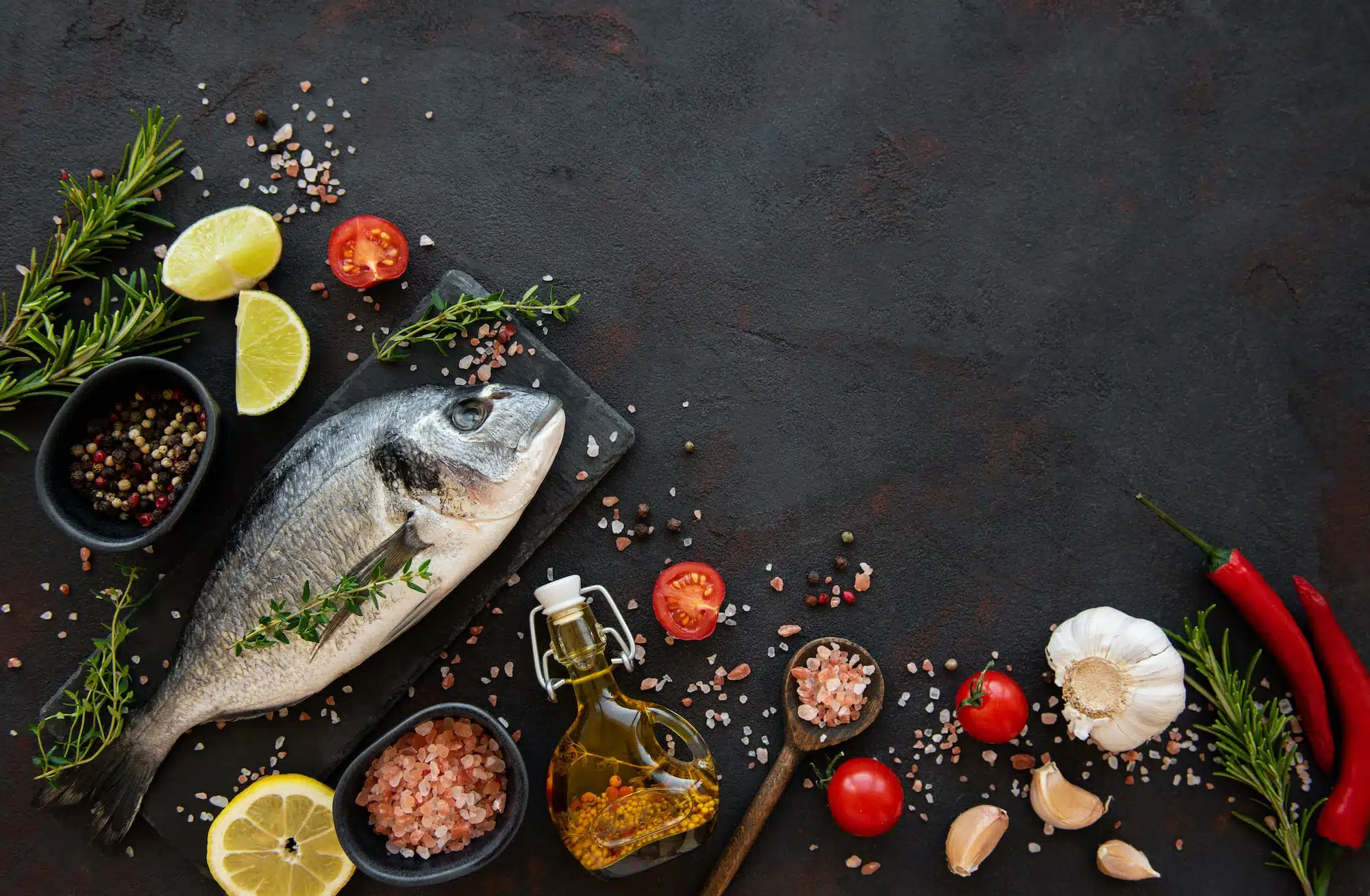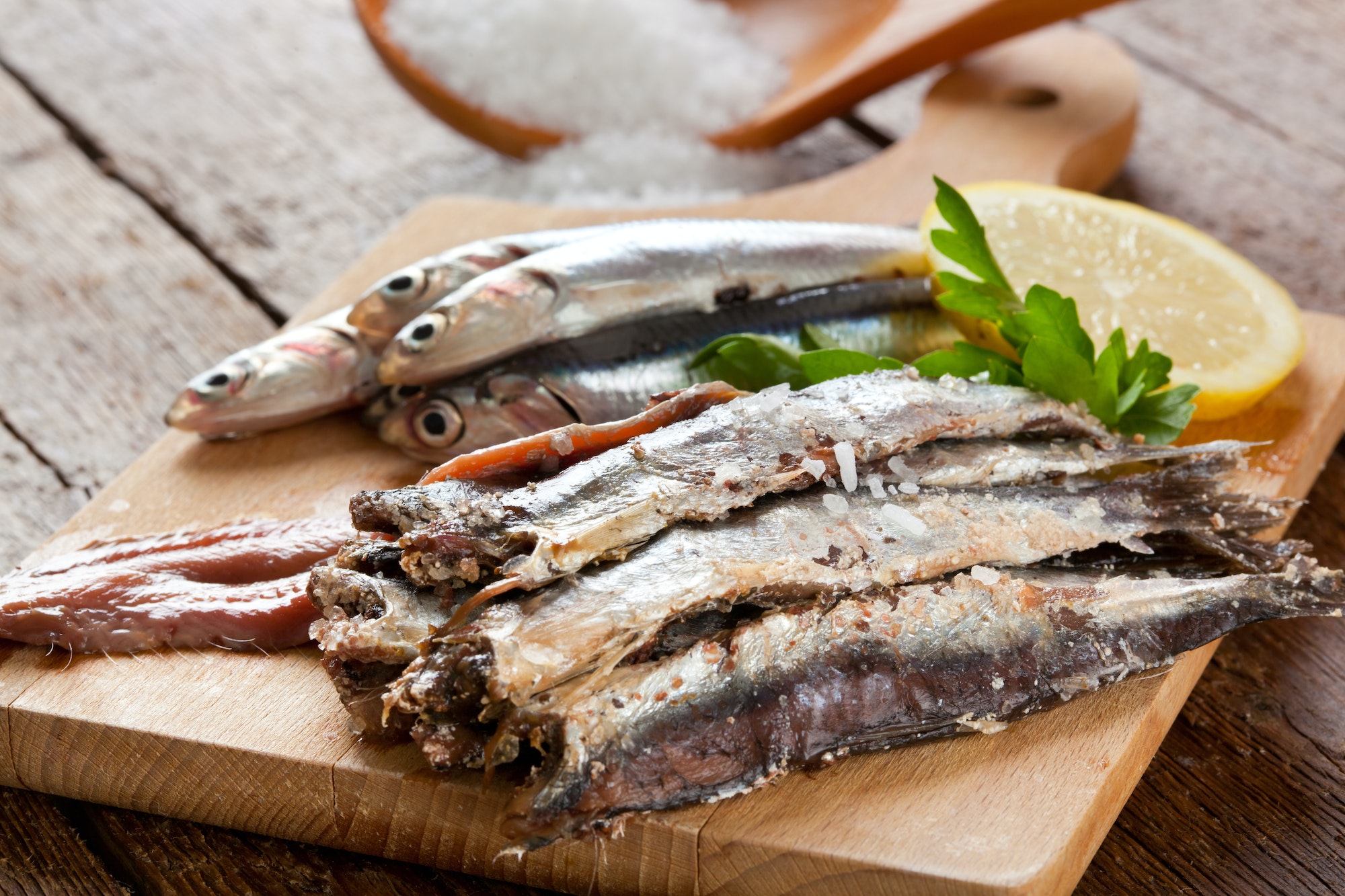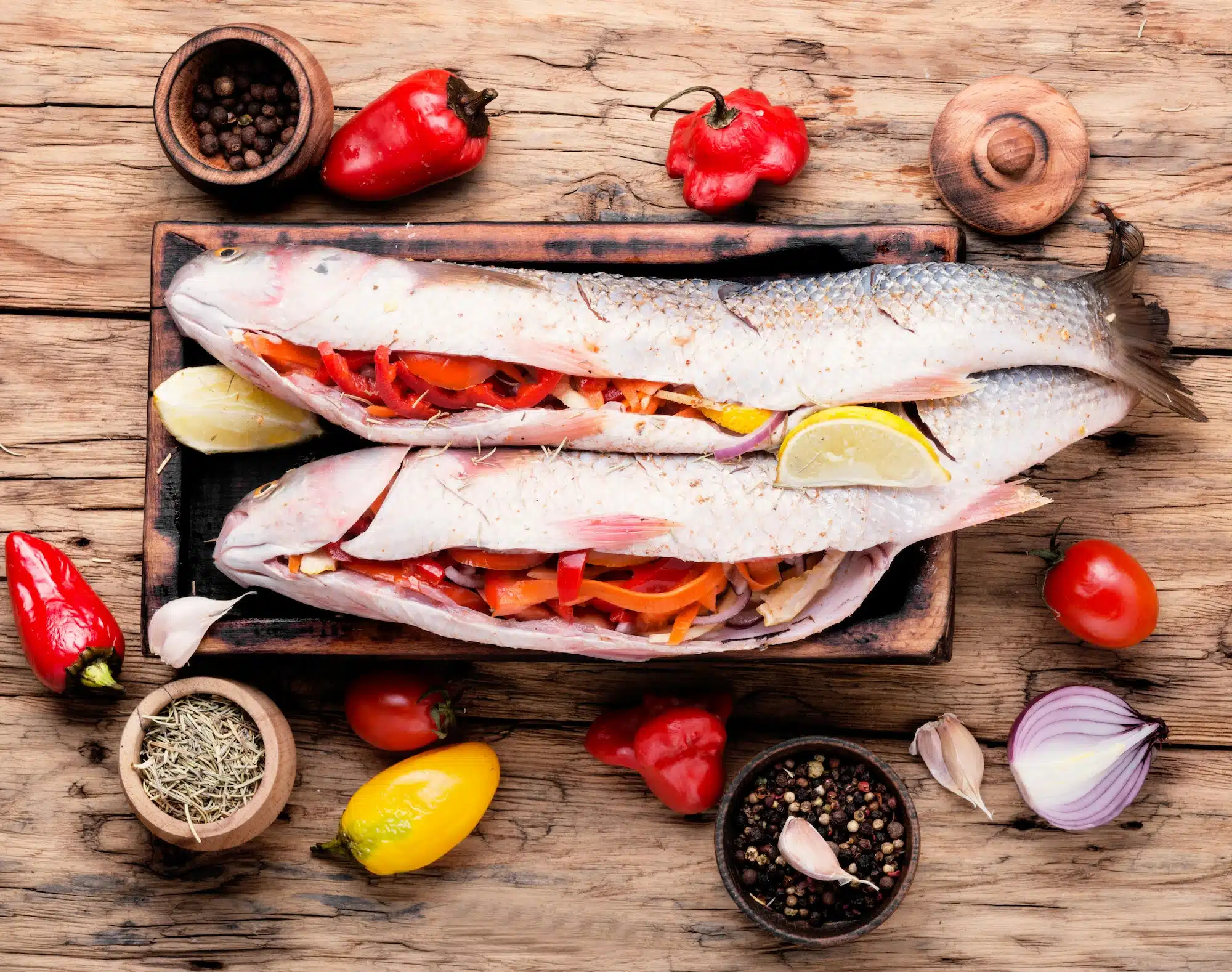Fish and seafood are highly sought-after sources of protein, prized for their delicate flavors and versatility in the kitchen. However, to truly elevate the taste of fish dishes, it is essential to incorporate a variety of herbs and spices that complement their unique flavor profiles. In this article, we will delve into the world of culinary spices and ingredients that can be used to create exceptional fish dishes.
From traditional herbs like basil and tarragon to more exotic options like ginger and coriander, there are countless seasonings that can be used to enhance the flavor of fish. Our goal is to provide you with a comprehensive guide on how to use these ingredients effectively in your cooking, from marinating techniques to recipe ideas that will impress even the most discerning palates. Whether you are a seasoned chef or an amateur cook looking to expand your culinary horizons, this article aims to inspire you with new ideas for creating unforgettable fish dishes that will leave your guests begging for more.

Introduction
When it comes to cooking fish, choosing the right spices and ingredients is crucial in creating an exceptional dish. The flavors of herbs and spices can enhance the natural taste of fish and add depth to its flavor profile. With a plethora of options available, selecting the perfect combination can be daunting but rewarding. By exploring different herbs and spices, you can elevate your fish dishes to new heights, impressing even the most discerning palates.
An overview of the importance of choosing the right spices and ingredients for fish dishes
The selection of appropriate herbs and spices is paramount to heightening the flavor profile of fish and seafood, allowing culinary enthusiasts to explore the limitless possibilities of enhancing mild, delicate tastes. Using unconventional spices, pairing fish with unexpected ingredients, or cooking fish with international flavors can all result in unique and exciting dishes that are sure to impress any discerning palate. The use of herbs and spices also allows for a healthier alternative to traditional seasoning methods, as they do not rely on high levels of salt or fat to enhance flavor.
When choosing which herbs and spices to use with fish dishes, it is important to consider the type of fish being used, as well as personal preferences and cultural influences. For example, using ginger or lemongrass can add an Asian-inspired twist to a dish featuring white-fleshed fish such as halibut or cod. Alternatively, smoked paprika or cumin can bring a rich depth of flavor when paired with salmon or trout. Exploring different combinations of herbs and spices can lead to unexpected but ultimately delicious results that elevate any meal into a truly unforgettable experience.
The Art of Cooking Fish: Essential Knowledge
The art of cooking fish requires a deep understanding of the varieties of fish and their unique flavor profiles. Spices and ingredients play a crucial role in enhancing the natural taste of fish, making it a masterpiece on your plate. In this discussion, we will explore different types of fish and their distinct taste profiles, providing you with essential knowledge to elevate your culinary skills when it comes to cooking seafood.
A brief overview of the art of cooking fish and the crucial role that spices and ingredients play

An overview of the culinary technique of preparing fish reveals that the use of herbs and spices is essential, as evidenced by a study showing that up to 70% of consumers believe that seasoning enhances the flavor of fish. Exploring cultural influences, it is evident that many cuisines around the world have their unique blend of spices and herbs for fish dishes. For example, Cajun cuisine uses a combination of paprika, cayenne pepper, thyme, oregano, garlic powder, and onion powder to create their signature blackened fish dish.
Aside from enhancing taste and adding aroma to fish dishes, using herbs and spices also offers health benefits. Many herbs such as rosemary and thyme contain antioxidants that can help reduce inflammation in the body. Spices like turmeric are known for their anti-inflammatory properties while ginger has been shown to aid digestion. Sustainable fishing practices are also encouraged when using herbs and spices as they help preserve the natural flavor profile of fish without having to resort to artificial additives or preservatives. With these benefits in mind, incorporating an array of herbs and spices into your next seafood dish can elevate not just its taste but also its nutritional value.
Understanding Fish Varieties and Their Unique Flavors
Exploring the nuances of various fish varieties and their distinctive flavor profiles is crucial in developing a well-rounded understanding of how to best complement them with herbs and spices. For example, salmon has a rich and buttery taste that can be heightened by the addition of dill or coriander. On the other hand, white-fleshed fish like halibut or cod have a more delicate flavor that works well with basil or tarragon.
When it comes to understanding fish pairing, seasoning tips, and cooking techniques, it's important to consider not only the type of fish but also its origin and preparation method. Grilled fish may benefit from smoky paprika or lemon pepper while baked whole fish can be elevated with Australian Bush Herbs or a mixture of garlic and leek. In essence, mastering the art of seasoning fish requires experimentation and an appreciation for how different flavors interact with one another.
A discussion on different types of fish and their unique taste profiles
Understanding the distinctive flavor profiles of various fish is essential for developing an effective seasoning strategy, despite potential challenges in identifying and sourcing lesser-known or expensive varieties. Some fish have a delicate, sweet flavor like Tilapia, while others have a strong taste profile such as salmon. When selecting herbs and spices to pair with fish, it's important to consider their unique flavors and how they will complement or contrast with the protein.
Pairing fish with wine can also enhance the overall dining experience. For example, white wines like Sauvignon Blanc or Pinot Grigio pair well with light-bodied fish like Tilapia, while full-bodied reds like Cabernet Sauvignon work better with stronger-tasting fish like salmon. By understanding the different types of fish and their unique taste profiles, you can elevate your cooking game and create exceptional dishes that are sure to impress any seafood lover.
Pioneering Spices and Ingredients for Fish Dishes
This discussion will focus on the spices and ingredients that can elevate the flavor of fish dishes. From the magic of salt and pepper to the zing of citrus zest and juice, these elements play a crucial role in creating exceptional seafood dishes. Fresh herbs like parsley also add versatility to any recipe, while exploring an array of spices can unlock new depths of flavor in your cooking. Join us as we dive into the world of culinary creativity with fish as our canvas.
An introduction to the spices and ingredients that best enhance the flavor of fish
Enhancing the delicate taste of fish can be achieved through the use of carefully selected herbs and spices, each imparting their own unique flavor profiles to elevate any dish. Pairing spices, wine, and fish can create a harmonious balance that enhances the natural flavors of the seafood. For example, ginger adds depth to fish and works well in stir-fries, curries, and sushi rolls. Cumin has a nutty and pungent flavor that pairs well with fish while coriander has a fresh and citrusy flavor that works wonders for grilled salmon when mixed with cumin.
Using herbs in fish marinades is another way to infuse flavors into your dish. Basil adds sweetness and goes well with halibut or cod while dill provides a slightly sour and savory note that goes great with salmon or trout. Experimenting with fusion flavors in fish dishes is also becoming increasingly popular. Native lemon pepper adds a bright and refreshing taste to the fish, while black pepper adds heat. Spice blends like Salt Pepper Squid Spice, Smoky Almond Dukkah, BBQ Pepper Spice, and Fish Spice are all excellent options for enhancing the flavor of your favorite seafood dishes.
The Magic of Salt and Pepper
Salt and pepper are two of the most essential ingredients in any fish dish, as they enhance the natural flavors of the protein. The combination of these two seasonings is a classic choice for many seafood recipes, providing a simple yet effective way to bring out the best in your fish. By using just the right amount of salt and pepper, you can elevate your dishes with ease and create delectable meals that will impress any palate.
An explanation of how and why salt and pepper are foundational to any fish dish
The fundamental nature of salt and pepper in elevating the flavors of fish cannot be overstated, as their presence is crucial for enhancing the taste profile of any seafood dish. When exploring umami flavors, using infused oils for seasoning or experimenting with different types of salt can add depth to the dish. Salt not only adds flavor but also helps to preserve fish and seafood by drawing out unwanted moisture, while pepper provides a subtle heat that complements the natural sweetness of fish. It's important to use high-quality sea salt and freshly ground black pepper to achieve optimal results. Overall, mastering the balance between these two fundamental ingredients is key to creating exceptional fish dishes that will leave your guests wanting more.
Citrus Zest and Juice: The Secret Ingredient
Citrus zest and juice can be considered an indispensable and transformative element in elevating the flavor profile of seafood dishes. The tangy acidity of citrus helps to brighten up the natural sweetness of fish, while adding a refreshing aroma that complements its delicate flavor. Using citrus zest and juice is not limited to one type of fish or cuisine, as it pairs well with almost any kind of seafood from grilled shrimp to baked salmon.
Pairing fish with tropical fruits such as pineapple, mango, or papaya can boost the citrusy notes in your dish for a tropical twist. Experimenting with different types of vinegar for marinades can also add complexity to your seafood recipe. For example, rice vinegar adds a subtle sweetness while apple cider vinegar adds a tangy punch that balances out rich flavors like those found in tuna or cod. Incorporating citrus zest and juice into your fish dishes is an easy way to take them from ordinary to extraordinary while exploring unique flavor combinations that will leave your taste buds craving more.

The Role of Fresh Herbs
Dill is an herb that has a unique and irreplaceable role in flavoring fish dishes. Its slightly sour and savory notes make it a perfect complement to salmon or trout, and when combined with paprika, it gives a delightful lemony and peppery zing to your fish. Dill can be used in various forms such as fresh, dried, or even pickled, making it versatile and easy to incorporate into any recipe.
The Irreplaceable Role of Dill
Dill, with its slightly sour and savory notes, adds a unique flavor profile to fish dishes that cannot be replicated by other herbs or spices. The magic of dill lies in its ability to complement the delicate taste of fish without overpowering it, making it a popular choice for salmon and trout. Pairings with other herbs such as paprika can bring out the lemony and peppery zest of dill, while parsley can add a touch of pepper and grassy notes to create a well-rounded dish. Cooking techniques for dill-infused fish include baking, grilling, or even using it in sauces like tartar sauce or aioli. With its versatility and distinct flavor profile, dill is an irreplaceable ingredient in any seafood lover's kitchen arsenal.
Parsley: A Versatile Addition to Fish Dishes
Parsley, with its subtle yet distinctive notes of pepper and grassiness, offers a versatile and indispensable flavoring option that can elevate the taste profile of any fish dish to new heights. Whether added fresh or dried as a seasoning, parsley pairs well with all kinds of fish and seafood. It is also a great addition to salads, soups, and stews.
When using parsley to enhance fish dishes, it is important to pair it with different types of vegetables for added texture and flavor. Some good options include roasted cherry tomatoes, sautéed spinach or kale, caramelized onions or fennel, and grilled artichokes. Experimenting with fusion spices like smoked paprika or coriander can also lead to unique flavor combinations that are sure to impress your guests.
Exploring the World of Spices
This discussion will delve into the world of spices, focusing on two key players: paprika and coriander. Paprika provides a smoky undertone that can elevate any fish dish. Meanwhile, coriander adds an exotic flavor that pairs well with cumin for grilled salmon or other white-fleshed fish. By incorporating these spices, you can take your fish dishes to the next level and create a unique culinary experience.
Paprika: Adding Smoky Undertones
The addition of paprika to fish dishes provides a smoky undertone that enhances the overall flavor profile. Smoked paprika is a great ingredient to use when making fish dishes, as it adds depth and complexity to the dish. Pairing paprika with other spices like cumin or coriander can create an excellent seasoning for your fish. There are different types of paprika available, each with its unique flavor profile, so it's essential to choose the right type depending on the recipe you're making. For example, sweet or mild paprika works well with milder fish like halibut or cod, while hot or spicy paprika complements stronger-tasting fish like salmon or trout. Overall, using smoked paprika in your fish dishes is an easy way to add extra layers of flavor and elevate your cooking game effortlessly.
Coriander: A Hint of Exotic Flavor
Coriander, with its fresh and citrusy flavor, adds a hint of exotic taste to fish dishes and can be paired with cumin for an excellent seasoning for grilled salmon. This herb is versatile and can be used in many ways such as in curries, marinades, and salads. Adding coriander to your fish dishes not only enhances the flavor but also provides health benefits as it is rich in antioxidants and has anti-inflammatory properties. Experimenting with different combinations of herbs and spices like coriander can elevate your cooking game and impress your guests. So don't hesitate to incorporate this flavorful herb into your next seafood dish!
Marinating and Seasoning: Techniques to Enhance Fish Flavor

Exploring the methods of marinating and seasoning fish is akin to unlocking a treasure trove of flavor possibilities, allowing for the enhancement of natural tastes and textures through carefully selected herbs and spices. Marinating techniques can be used to infuse fish with additional flavors, as well as tenderize tougher cuts. For best results, marinate fish in an acid-based solution for several hours before cooking. Lemon or lime juice, vinegar, or even yogurt can all be used to achieve this effect.
Seasoning tips are also crucial when it comes to creating exceptional fish dishes. Rather than simply sprinkling salt and pepper over your fillets, consider using spice blends that incorporate a variety of herbs and spices. These blends can add depth and complexity to your dish without overwhelming the delicate flavor of the fish itself. Experiment with different combinations until you find one that complements your chosen seafood.
In addition to marinating and seasoning techniques, there are a variety of other flavor infusion ideas worth exploring when working with fish. One popular method involves wrapping fillets in banana leaves or parchment paper along with aromatics like lemongrass, ginger, or garlic before steaming or grilling them. This technique allows for the flavors to meld together beautifully while also protecting the delicate flesh from drying out during cooking.
Overall, mastering the art of marinating and seasoning is essential when it comes to creating exceptional fish dishes that truly stand out from the crowd. With a bit of experimentation and some carefully selected herbs and spices on hand, anyone can elevate their seafood game to new heights – so why not start exploring today?
Unforgettable Fish Dishes: Recipes That Impress
This section presents a collection of recipes that showcase the versatility and deliciousness of fish as a protein, while also demonstrating the artful use of herbs and spices to enhance natural flavors and textures. For those who love tacos, try making fish tacos with a twist by incorporating unexpected ingredients like mango salsa and avocado cream. Another creative way to use citrus in fish dishes is to grill whole fish with lemon slices inside the cavity for a fresh and zesty flavor.
When it comes to pairing wine with fish dishes, there are several options depending on the type of fish and preparation method. For white-fleshed fish like halibut or cod, pair with a crisp Sauvignon Blanc or unoaked Chardonnay. For rich and fatty fish like salmon or tuna, opt for a Pinot Noir or Merlot. And for spicy seafood dishes like shrimp curry or Cajun-style catfish, try pairing with a slightly sweet Riesling.
For something more elegant, try pan-seared sea bass fillets with herb butter sauce or baked snapper with roasted vegetables. Both can be seasoned with a blend of herbs like parsley, dill, and tarragon for added depth of flavor. And don't forget about side dishes – roasted potatoes or grilled asparagus make great accompaniments to any seafood dish.
In summary, these recipes provide inspiration for creating unforgettable fish dishes that are not only delicious but also showcase the beauty of using herbs and spices to enhance natural flavors. From playful variations on classic taco recipes to elegant entrees perfect for dinner parties, there is no shortage of ways to elevate your next seafood meal. With thoughtful wine pairings and complementary side dishes, you can create an unforgettable dining experience that will impress even the most discerning palates.
Tips for Storing Spices and Ingredients
Just as a well-stocked pantry is the backbone of any successful kitchen, proper storage of herbs and spices is essential for maintaining their full flavor potential. Herbs and spices are delicate ingredients that can lose their potency over time if not stored properly. To ensure that your spice collection remains fresh and flavorful, it's important to organize them in a way that maximizes their shelf life.
Proper storage starts with choosing the right container. Glass jars or metal tins with tight-fitting lids are ideal as they protect against moisture and light, which can cause herbs and spices to lose their flavor. It's also important to keep your spices away from heat sources such as ovens or stovetops, which can accelerate their deterioration. Instead, store them in a cool, dry place such as a pantry or cupboard.
Organizing your spice collection is key to efficient cooking and preventing waste. One approach is to group similar ingredients together such as allspice, cinnamon, cloves and nutmeg – these are often used in baking recipes so keep them close by. Another option is organizing alphabetically or by cuisine type – this makes it easy to find the right ingredient when you need it.
In conclusion, proper storage of herbs and spices will ensure that they retain their full flavor potential for longer periods of time. By choosing the right container, keeping them away from heat sources, and organizing them effectively you can save money on wasted ingredients while also making sure that each ingredient plays its part perfectly in creating harmonious flavors in your dishes.
Frequently Asked Questions
What are some lesser-known spices and ingredients that can be used to enhance the flavor of fish dishes?
Unconventional pairings, regional favorites, and fusion inspirations are all great ways to enhance the flavor of fish dishes. Lesser-known spices like sumac, za'atar, and ras el hanout can add a burst of flavor to any fish dish. Regional favorites like Old Bay seasoning or Cajun spice blends can bring a taste of the coast to your kitchen. Fusion inspirations like miso paste or gochujang can add an unexpected twist to traditional fish dishes. Don't be afraid to experiment with different herbs and spices to find your perfect pairing for exceptional fish dishes.
How can different cooking methods affect the flavor of fish, and what are some tips for choosing the right method for different types of fish?
The flavor of fish can be enhanced or altered by the cooking method used. Grilling and frying can add a smoky or crispy texture, respectively, while poaching and baking can maintain the moisture and tenderness of the fish. Steaming is ideal for delicate fish that require gentle cooking to retain their natural flavors, while broiling provides a charred and caramelized exterior. Each cooking method has its unique pros and cons, so choosing the right one depends on the type of fish being cooked and personal preferences. By mastering various cooking techniques, home cooks can elevate their seafood dishes to new heights of flavor and texture.
Are there any herbs or spices that should be avoided when cooking fish, and why?
When it comes to seasoning fish, choosing the right spices can make all the difference in enhancing its natural flavor. However, there are some spices that should be avoided when cooking fish. For example, strong and pungent spices like cinnamon, cloves, and nutmeg can overpower the mild taste of fish and should be used sparingly or avoided altogether. On the other hand, pairing spices with fish can create a delightful blend of flavors. Beginners may want to start with simple combinations like lemon pepper or garlic and herb seasoning before experimenting with more complex blends. Ultimately, seasoning fish is a matter of personal preference and taste. With some experimentation and practice, anyone can learn how to season their favorite fish dishes to perfection.
What are some common mistakes that people make when seasoning fish, and how can they be avoided?
Common seasoning mistakes when cooking fish include over-seasoning, using the wrong combination of herbs and spices, and not properly balancing the flavors. Over-seasoning can result in a dish that is too salty or spicy, overpowering the delicate flavor of the fish. Solutions for over-seasoning include adding more fish to balance out the flavors or incorporating acid like lemon or vinegar to cut through the saltiness. Proper seasoning techniques involve layering flavors by starting with a base of salt and pepper before adding herbs and spices, tasting as you go along to ensure a well-balanced dish. It's also important to consider how different herbs and spices work together and pair with specific types of fish. By being mindful of these common mistakes and utilizing proper seasoning techniques, anyone can create exceptional fish dishes that are flavorful without being overly seasoned.
How can the use of herbs and spices in fish dishes be adjusted to accommodate different dietary restrictions, such as low-sodium or vegan diets?
Herbs and spices are essential ingredients in enhancing the flavor of fish dishes. However, accommodating different dietary restrictions such as low-sodium or vegan diets can be challenging. To address this issue, low sodium alternatives like lemon juice or vinegar can replace salt in seasoning fish. Vegan-friendly seasonings like smoked paprika, cumin, and coriander can add depth to plant-based fish dishes. Herb-infused cooking techniques like grilling with rosemary or thyme can also provide a burst of flavor without adding extra salt or fat. With these options available, it is possible to create delicious and healthy fish dishes that cater to various dietary needs.
Conclusion

In conclusion, the use of herbs and spices can take fish dishes to a whole new level. From classic choices like basil and tarragon to more unique options like Australian Bush Herbs, there are endless possibilities for enhancing the flavor of seafood. Marinating and seasoning techniques can also make a significant difference in how well the flavors penetrate the fish. With these tips and recipes, anyone can create unforgettable fish dishes that will impress even the most discerning palate.
As with any cooking ingredient, proper storage is crucial to maintaining freshness and potency. Ensure that spices are kept in a cool, dry place away from direct sunlight to prevent moisture buildup and loss of flavor. By following these guidelines, home cooks can elevate their culinary skills and create exceptional seafood dishes that will leave a lasting impression on guests. As William Shakespeare once said, "the spice of life is variety," so why not try something new and add some zest to your next fish dish?
There is reasonable evidence that this article is machine-generated. Posting such content is considered fraud. Fraud is discouraged by the community and may result in the account being Blacklisted.
Guide: Why and How People Abuse and Defraud
If you believe this comment is in error, please contact us in #appeals in Discord.
I don't give a damn what you think. And if I'm on the blacklist, I don't care either. I write and post what I think and I don't care about the rest.